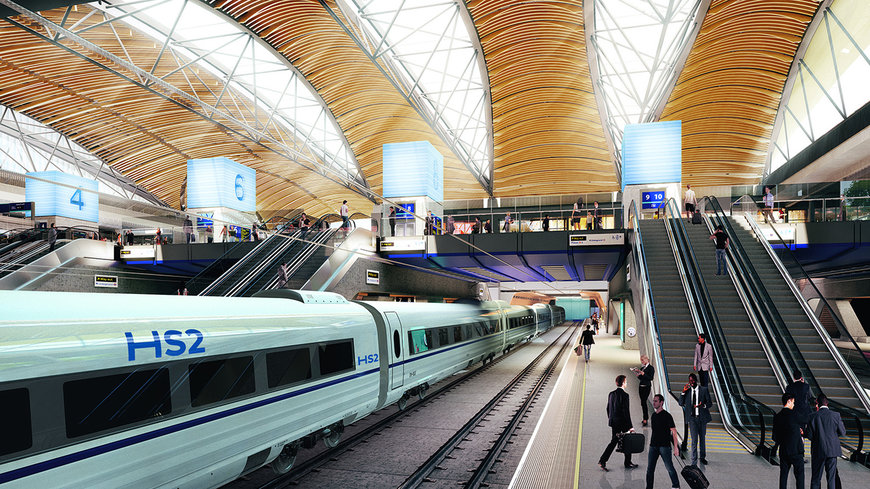www.magazine-industry-usa.com
10
'19
Written on Modified on
Unrealistic” HS2 delayed by another five years as costs rise to £88bn
The high-speed railway linking London, Birmingham and Leeds which was due to open in 2026 will witness a delay by five years, UK Transport Minister Grant Shapps has said.

Cook said the delay was a result of original plans being unable to account for the effect of construction through densely-populated areas with difficult geographies.
Following the report, Shapps said in a statement released on 3 September: “While this allows a stable set of numbers to compare against, it also risks being misconstrued and understating the relative cost of the project, and indeed its benefits.
“During the short period in which the independent review completes its work I have authorised HS2 Ltd to continue the current works that are taking place on the project. This will ensure we are ready to proceed without further delay for the main construction stage of Phase 1 in the event that the government chooses to continue,” said Shapps.
Due to escalating costs, the phase linking London and Birmingham is now expected to launch between 2028 and 2031, while the line connecting Birmingham and Leeds has been delayed until 2035-2040, the report said.
Despite the delays and increasing costs, many are optimistic about the project’s progress. Chief executive of the Railway Industry Association Darren Caplan said: “It is important to remember the project remains vital for the UK, its economy, cities and regional communities, and as shown by Chairman Alan Cook’s Stocktake, the benefits have been substantially undervalued. It will still more than pay for itself in GVA for the country, and will support 30,000 jobs at peak construction.”
Chair of Midlands Connect and Midlands Engine Sir John Peace said the railway project is a “once-in-a-lifetime opportunity to rebalance the UK economy.”
Peace added: “Although any delay is very disappointing, this is a project we will all benefit from for the next hundred years and more. It’s well worth waiting for. Decades from now, when our grandchildren look back at the investment we made in their future, they won’t be concerned with the exact year in which it opened.”
While the HS2 project has been strongly supported by local government leaders in the north and the midlands in the past, the continuous delays have sparked criticism. Some Liberal Democrat MPs have deemed the HS2 project a “failure for the North.”
Liberal Democrat MEP for the North West Jane Brophy said: “The Tories’ long-term indecision and incompetence was always going to cost taxpayers and fail Northerners the most.”
Leader of the Liberal Democrats in Manchester John Leech, who was on the Transport Select Committee during HS2’s early stages, first called for the project to begin in Manchester over a decade ago. “Whilst our calls have gone ignored, prices are higher and trains are worse than ever before,” he said.
“This is a predictable shambles from a London-obsessed government and a monumental failure for the North.”
Campaigners have continuously called for the project to be shut down altogether. Joe Rukin of Stop HS2, said: “It is now absolutely clear that Parliament and the public have been callously and systematically lied to in a calculated manner over the cost and schedule of HS2 for a number of years by senior ministers.”
Cook’s report comes in advance of the government’s decision of whether the project should go ahead at all.
Boris Johnson has in July 2019 criticised the manner in which HS2’s costs are “spiralling out of control” and said the project will probably not proceed as planned. On 21 August 2019, the government announced a review into the costs and benefits of the rail project, with a “go or no-go” decision by the end of the year.
railway-technology.com / Varsha Saraogi

